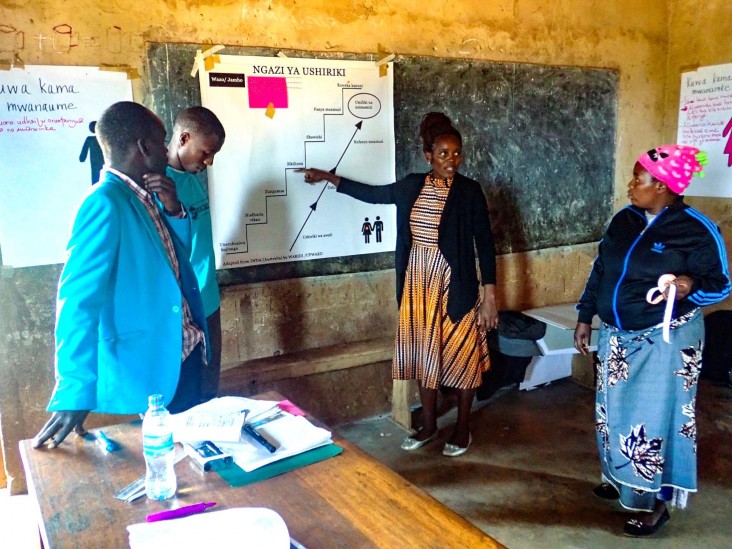Speeches Shim

In rural Tanzania, women and girls bear the greatest burden when water is scarce and sanitation and hygiene are poor. Yet their needs are often not represented in community decision-making on water and sanitation. Even when women are members of village and water governance institutions, social norms sanction women for speaking in public and keep them from participating fully.
In the communities of Kanolo in Kilombero District and Lulanzi in Kilolo District, WARIDI assessed and documented the social norms that most inhibit women’s participation and leadership. These norms include the perception that women who speak in public are “big headed” and “proud,” and that women’s contributions complicate and lengthen community decision-making. In addition, husbands who allow their wives to speak up, especially when their wives are younger, are seen as lesser men.
Following the assessment, WARIDI trained 12 community-based facilitators on strategies to increase women’s participation in decision making. The facilitators then trained 61 community leaders (32 women and 29 men) and 168 women’s group members. The training taught participants several key skills. One, how to identify and challenge harmful gender norms which keep women from participating meaningfully in making decisions about water resources. Two, how to examine expectations of community leaders and explore models of inclusive leadership. And, finally, how to strengthen women’s public speaking skills and self-confidence.
There are signs that change is happening. In a session on gender norms and inclusive decision-making, Mzee Tuwene Gavile, a village elder, addressed the 65 assembled community members. “When a woman stands and speaks, people may be criticizing just because it’s a woman. But I think women should not be giving up as they have strong points to make which are vital in influencing decisions. What we have to do is to keep encouraging them so that they will effectively participate in discussions and influence decisions as they are very important members of the community.”
WARIDI will continue to monitor the intervention. It will also evaluate the degree to which UPWARD has helped social norms shift so that women can participate in community decision-making. This will help ensure water resources are allocated in a way that meets the needs of all members of the community.

Comment
Make a general inquiry or suggest an improvement.